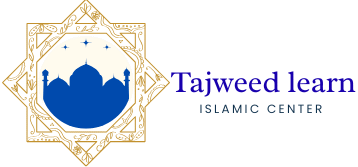As someone who grew up learning the basics of Islam, the second Kalma—Kalima Shahadat—was my first deep connection to faith. This statement is more than just memorization; it’s a powerful declaration and a personal pledge that we recited with devotion.
It reminds us to uphold Islamic principles and live by a truth that centers around the oneness of Allah, who has no partner.The Kalima confirms the central doctrine of Tawheed, the belief that Allah is One, alone, and without any equal—Al-Ahad, Al-Wahid, the only God we worship.
Through this, we are also bearing witness to the Prophethood of Muhammad, who is the Messenger and loyal servant of Allah. To recognize this truth is to accept both His unity and His Messenger’s role.Every time I recited the Kalima, it shaped my understanding of spiritual identity.
It taught me to value the unification of belief and practice in everyday life. In this one statement, we find the foundation of our Islamic path—simple yet deep, verbal yet life-changing, personal yet universally worthy.
2nd Kalma in Arabic
2nd Kalma with Urdu Translation
2nd Kalma in English Translation
2nd Kalma English Transliteration
What is the Meaning of “Ash-hadu an la ilaha illa Allah”?
When I first learned the meaning of “Ash-hadu an la ilaha illa Allah,” I felt a deep connection to Islam and its spiritual pillars. This simple testimony, often repeated in prayers, is a strong witness to the truth that there is no deity worthy of worship except Allah.
The translation in English also includes the belief that Muhammad is His Messenger, a statement deeply rooted in both the Quran and Hadith.These words are not random—they are part of the Kalimas, with the second shahadat being central to Islamic doctrines.
The Prophet emphasized that Islam is built on five core beliefs, starting with this powerful statement. Phrases like Wahdahoo, Shareeka, Abduhoo, and Rasooluhu further explain that Allah is One, alone, without any partner, and that the Prophet was His faithful servant.
These concepts were collected from reliable sources to help us understand and uphold true belief.The six Kalimas are memorized by millions across the globe, taught to children as educational tools for life and learning.
What is the importance of the Second Kalima (Shahadat)?
The second kalima, called shahadat, is a key part of faith where a Muslim is bearing witness to the truth.
It holds the doctrine of Tawheed, the belief in the unification and oneness of Allah, the only God.
He is One, Single, known as Al-Ahad, Al-Wahid, and Muhammad is His servant and messenger.
The Shahada is a powerful statement found in the Quran and Hadith, and it’s central to Islam’s theme.
When a Muslim recites it, they proclaim this as true and accept the responsibility to obey its commitments.
The six Kalimas are memorized by millions across the globe, taught to children as educational tools for life and learning.
Kalima Shahadat in Hadith
In Hadith 57 of Bulugh al-Maram, narrated by ‘Umar, the Prophet Muhammad, or Allah’s Messenger, spoke about performing wudu with sincerity. After ablution, reciting the supplication “Ash-hadu an la ilaha ill-Allahu wahdahu la sharika lahu, wa ash-hadu anna Muhammadan ‘abduhu wa Rasuluhu” means to testify worship of Allah, the alone God with no partner.
The Messenger promised that all eight gates of paradise will open, and the believer can enter through whichever gate he wishes. This statement is part of the adhaan, recited before every prayer five times a day, helping keep remembrance of Allah alive in our minds.
Conclusion
The Second Kalma Shahada stands as a cornerstone of Islamic faith, beautifully expressing the oneness of Allah and the acceptance of Muhammad as His Messenger. It is more than just words; it is a heartfelt testimony that shapes the spiritual life of every Muslim and connects believers worldwide through its deep meaning and practice. By embracing this Kalima, we uphold the sacred doctrine of Tawheed and reaffirm our commitment to live according to the teachings of Islam.
Rooted in the Quran and Hadith, the Shahada is recited daily in prayers and remains a guiding light for Muslims, opening the gates of paradise and nurturing continuous remembrance of Allah. Teaching and memorizing this profound statement from a young age ensures that the core beliefs of Islam stay alive throughout a lifetime, strengthening both individual faith and the unity of the global Muslim community.
